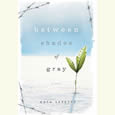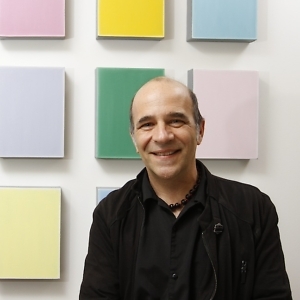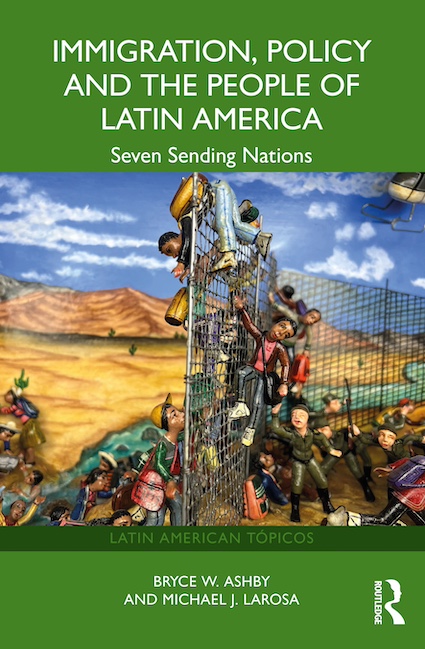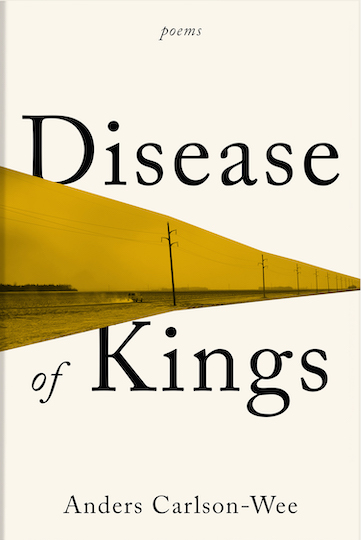Hero Complex
Jaden Terrell talks with Chapter 16 about her debut thriller, Racing the Devil, her protagonist—a sweetheart of a disgraced ex-cop—and her plans for a ten-book series
In Jaden Terrell’s debut novel, Racing the Devil, private investigator Jared McKean is drinking away his blues in a seedy Nashville biker bar, when he spots a damsel in distress: “Even in the dim light of the bar, I could see the bruises,” he notes. With Pavlovian predictability, his hero complex kicks in. To protect and comfort her, he lets the battered woman pick him up, take him to a run-down motel, and ride him until dawn.
Two days later he wakes from a drugged stupor to find that his truck has been stolen and returned with a stash of kiddie-porn hidden under the seat. A woman whom he has never met or even heard of has been shot to death, and he is the main suspect. After all, his gun, his fingerprints, and his DNA were found at the murder site. Only his roommate, his horse, his ex-wife, and their son believe in him. Through the rest of this page-turner of a debut thriller, McKean races both time and the devil to extricate himself from the almost-perfect frame-up, prove his innocence, and protect his family.
Prior to her appearance at Parnassus Books in Nashville, Jaden Terrell answered questions from Chapter 16 via email.
Chapter 16: Jared McKean is an ex-cop turned PI, who has a gay roommate, a son with Down syndrome, and a couple of horses. He is a man with a hero complex, prone to violence, but ultimately rather sweet and able to roll with the punches, even forming a relationship with his ex-wife’s new husband. How did you develop this character? How do you feel about him?
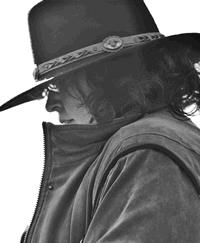 Terrell: I was sitting in a movie theater watching Saving Private Ryan—that incredible scene where the ocean is awash in blood and those young men keep getting out of the boats, knowing that only a few will make it to shore and that only a few of those will make it across the beach—and I thought, “My God, this is what we ask our men to do. We ask them to go through this, then come home and be good fathers, good friends, and loving husbands. And they do. Almost all of them do.” Later, when I started the series, I wanted Jared to be that guy. The one who walks into danger so we don’t have to. He comes out of it changed—maybe even damaged—but still a good man.
Terrell: I was sitting in a movie theater watching Saving Private Ryan—that incredible scene where the ocean is awash in blood and those young men keep getting out of the boats, knowing that only a few will make it to shore and that only a few of those will make it across the beach—and I thought, “My God, this is what we ask our men to do. We ask them to go through this, then come home and be good fathers, good friends, and loving husbands. And they do. Almost all of them do.” Later, when I started the series, I wanted Jared to be that guy. The one who walks into danger so we don’t have to. He comes out of it changed—maybe even damaged—but still a good man.
I started asking myself questions about him, and as I answered them, he came into focus. I gave him my dog, a twelve-year-old Akita, and my horse, an elderly palomino quarter horse (he’s 37 now!). I gave him a son with Down syndrome because I was a special-ed teacher for twelve years, and I thought having a son with a disability would bring out a gentleness in him that would offset the mental toughness that comes from investigating homicides and doing undercover work for the vice squad. The decision to make his housemate and landlord a gay man with AIDS came about because I had lost a close friend to the disease. I wanted to explore how such a friendship would influence a straight man raised in a conservative Nazarene family in the middle of the Bible Belt.
A pattern started to emerge. Jared is a man who never gives up what he loves. He will find a way to make it work, even if it’s difficult, even if he has to re-think the parameters of a relationship and his role in it. He’s the guy who, three years after you break up with him, will help you move your furniture. Can you tell how much I love him?
Chapter 16: The novel opens with a clever set-up that frames Jared for a murder he didn’t commit. How did you work out that intricate scheme?
Terrell: When I started plotting, I knew Jared and a lot of the supporting characters, but I had no idea what the story was. He needed to be so invested in the case—whatever it was—that he couldn’t walk away from it. A frame-up seemed like the ideal place to start, since he would have no choice but to press on, regardless of how dangerous or frightening it got. Since he’s a man with a lot of friends and connections, the case against him had to be rock-solid, so I started with that. Someone could plant hair or fingerprints at a murder scene, but those things wouldn’t be conclusive, so I came up with the most iron-clad case against him I could and then worked out what steps the villain would have to take to create that situation. Then I had to figure out who would have a motive to do such a thing. The hardest part was figuring out what would motivate Jared to go to a motel with a woman he’d just met. He’s a good-looking guy (can I say “hot” here?), but he’s not a player. I had a hard time getting him to walk into the trap until I realized she had to play to his weakness, which is his Galahad complex. It grew from there.
Chapter 16: It is always interesting when authors write from the point of view of the opposite sex. Did this cause you any discomfort? How did you twist your head around to write sex scenes from Jared’s point of view?
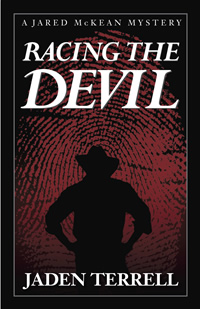 Terrell: The opposite, actually. I was trying unsuccessfully to write about a spunky female private detective, and it wasn’t working out at all. Every character I came up with was a bad Kinsey Milhone knock-off. As I was struggling with this woman, I kept seeing an image of a tall, handsome man in jeans and a leather bomber jacket I knew his father had worn in the Vietnam War. His arms were crossed, and he was leaning against a white wooden fence, and there were horses on the other side of it. He looked me in the eye and said, “I’m your guy.”
Terrell: The opposite, actually. I was trying unsuccessfully to write about a spunky female private detective, and it wasn’t working out at all. Every character I came up with was a bad Kinsey Milhone knock-off. As I was struggling with this woman, I kept seeing an image of a tall, handsome man in jeans and a leather bomber jacket I knew his father had worn in the Vietnam War. His arms were crossed, and he was leaning against a white wooden fence, and there were horses on the other side of it. He looked me in the eye and said, “I’m your guy.”
And I said, “No, you’re not.” But he was. When I’d had my fill of wrangling with a character who refused to be wrangled, I said to him, “Okay, show me what you’ve got.” I find him easy to write. In my mind, he’s sitting next to me telling me this story, and I write it down as fast as I can, paraphrasing it a lot, so my first drafts sound a little too much like me. In subsequent drafts, I have to tighten and toughen the language to find his real voice—man him up a bit. The sex scenes are a little challenging, but fortunately, I have a husband who is happy to help with those—even when he doesn’t know he’s doing it.
Chapter 16: You are a graduate of Nashville’s Citizens Police Academy. How important was that training to becoming a crime novelist?
Terrell: Very important. I really wanted to write about this character, but I knew nothing about police procedure or what it’s like to be in law enforcement. That saying “write what you know” really means “write what you’re passionate about and find out what you don’t know.” The Citizen Police Academy not only helped me learn some of the nuts and bolts of police work, it gave me some contacts on the police force I can call on when I need to. Since then, I’ve been to the FBI and the TBI Citizen Academies and Lee Lofland’s Writers Police Academy in Greensboro, North Carolina. I recommend it to anyone whose writing involves law enforcement procedure, even tangentially.
Chapter 16: You are a member of a Nashville’s Quill and Dagger critique group. What’s the history of the group and how do the members support one another?
Terrell: There are eight of us in the group now, three of whom have been in it since the beginning. None of us can pinpoint the exact date, but it was formed sometime around 1993 or 1994. It was the Rivergate Writer’s Group then, and we met at the Books-a-Million near RIvergate Mall. Members came and went, and the woman who originally formed it developed some serious health problems and had to stop coming, but we kept meeting anyway. Along the way, we dropped the Rivergate part and decided on Quill & Dagger, because several of us wrote both mystery and fantasy. We read each other’s work and give encouragement. We also tell each other when something works and when it doesn’t. Usually, we work a chapter at a time, but when one of us finishes a complete manuscript, several of the others read it through and give input. We’re beta readers (or what some call “trusted readers”) for each other, but we’re so much more—we’re friends, advocates, supporters, and sometimes cheerleaders. I couldn’t ask for a better critique group.
Chapter 16: You are also active in other Nashville crime writers’ organizations, such as the Killer Nashville conference and Sisters in Crime. How do these activities further your writing career?
Terrell: Being active in writers’ conferences and organizations benefits writers in several ways. First, they help you hone your craft. I can’t count the number of conferences and workshops I’ve been to, and I always learn something new. Second, they’re excellent places to network—by which I don’t mean meeting people with an eye toward what they can do for you. I mean, a place to make friends whose interests are similar to yours and whose company you enjoy. Yes, they might help you in your career, but you should be looking for ways to help them too. Third, the more involved you are, the more name recognition you get. I’m no celebrity, but a lot of people recognize my name because of my work with Killer Nashville, Mystery Writers of America, and Sisters in Crime.
Chapter 16: Racing the Devil has had a long trajectory through self-publishing and then a micro-press before reaching its present incarnation from Permanent Press represented by a literary agent. How did you survive the ups and downs of that journey?
Terrell: I sometimes wish it had happened faster, but I had a lot to learn, and if I’d gotten a traditional contract right off the bat, I might not have had the opportunity to recover from all the mistakes I’ve made. The publishing world can be unforgiving, so I’ve been fortunate to have so much support from friends who are published writers and also from agents and publishers. Even those who didn’t take me on were generous with their time and encouragement. My writing career has moved forward in baby steps, but I’m grateful for every one of them, because each one gave me a chance to learn something—and a chance to make the book better.
Chapter 16: You’ve got a second Jared McKean novel coming out this year. Can you give us a sneak preview? What are your plans for the continuing series?
Terrell: Right now, I’m thinking in terms of a ten-book series, though if I get to the end of number ten and decide there’s more to explore, I’m open to it. So far, future storylines involve human trafficking, a schizophrenic war veteran accused of murder, and the Tennessee Walking Horse soring controversy. Book Five takes place in Alaska. I’ve never been there, but I’m looking forward to the research!
In the second book, A Cup Full of Midnight, Jared’s teenaged nephew, Josh, has fallen under the influence of a dangerous fringe of the Goth subculture. When the fringe group’s leader—a mind-manipulating sociopath who considers himself a vampire—is found butchered and posed across a pentagram, Josh is the number-one suspect. Jared loves his nephew like a son, so of course he sets out to find the real killer. In the process, he learns that Josh is more than a suspect. He’s a target. There’s an excerpt on my website.
Jared has a lot of layers and dimensions I look forward to exploring, and I hope to be writing about him for many years to come. And by the way, did I mention he’s really hot?
Jaden Terrell will read from Racing the Devil at Parnassus Books in Nashville on February 11 at 1 p.m.

